NSYSU ties alliance with Tzu Chi University to promote medical research
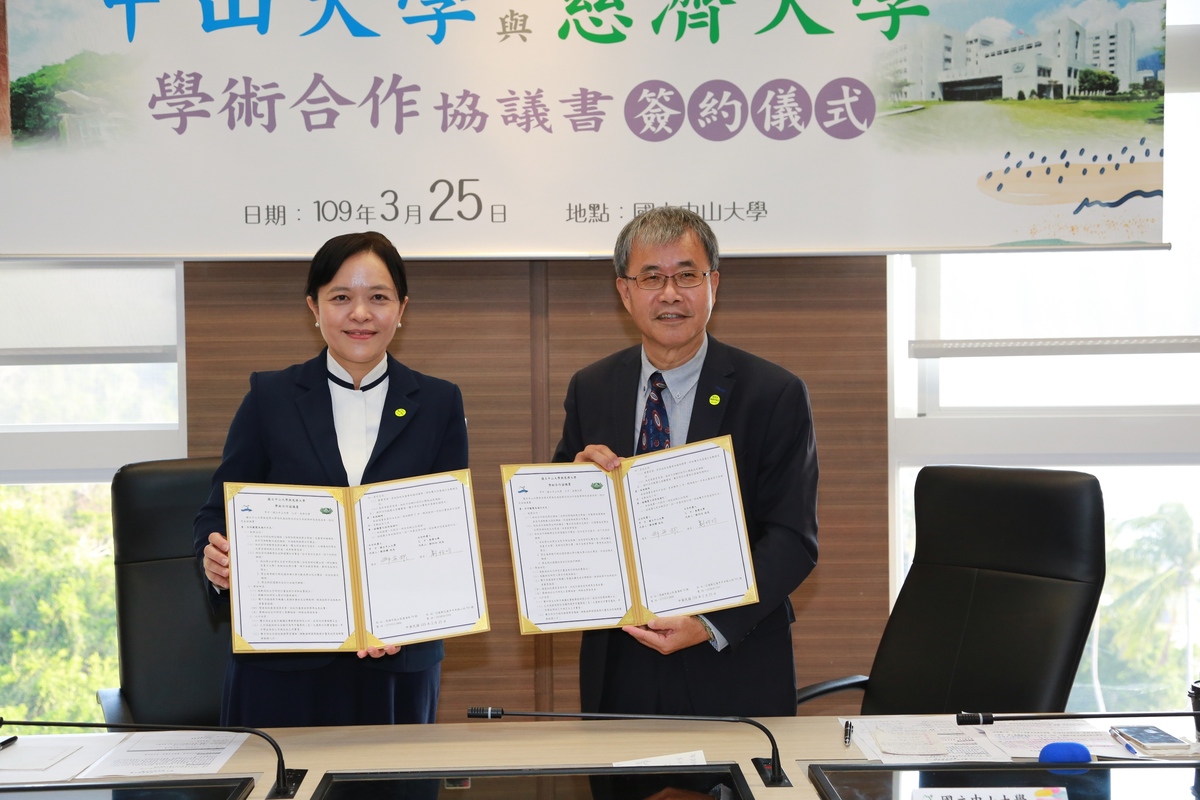
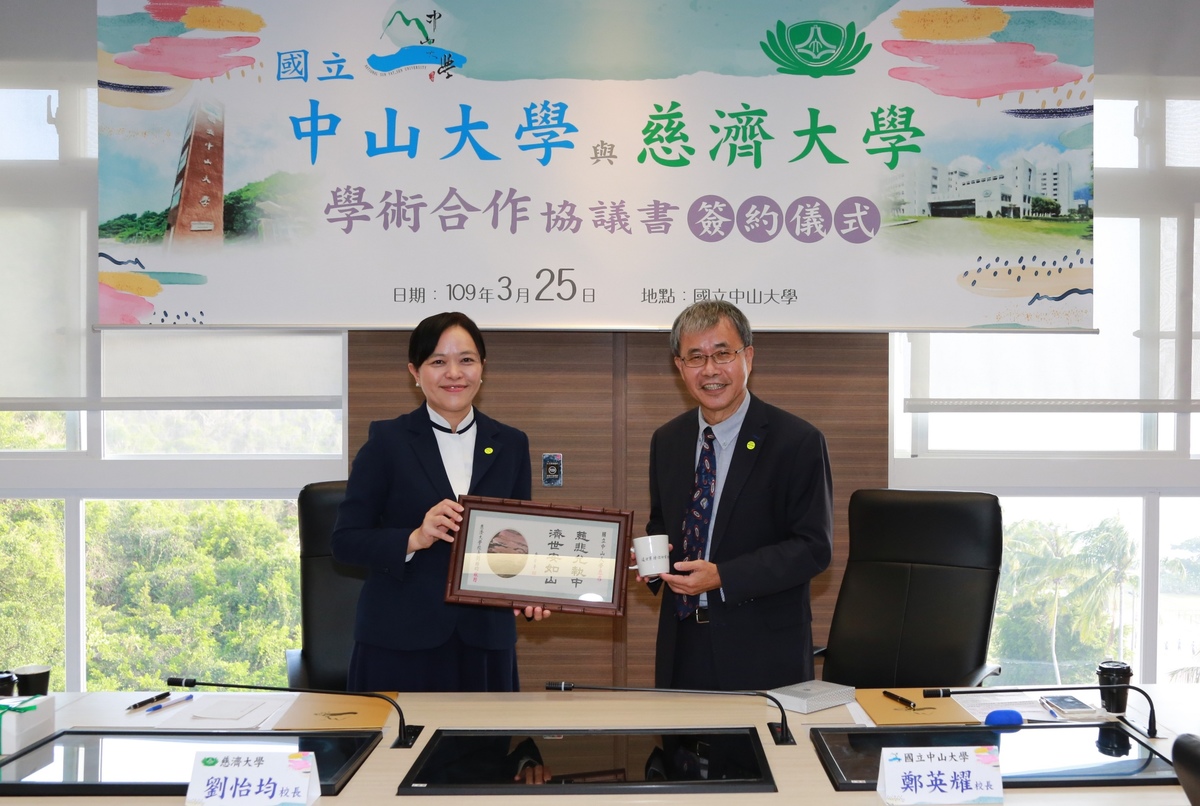
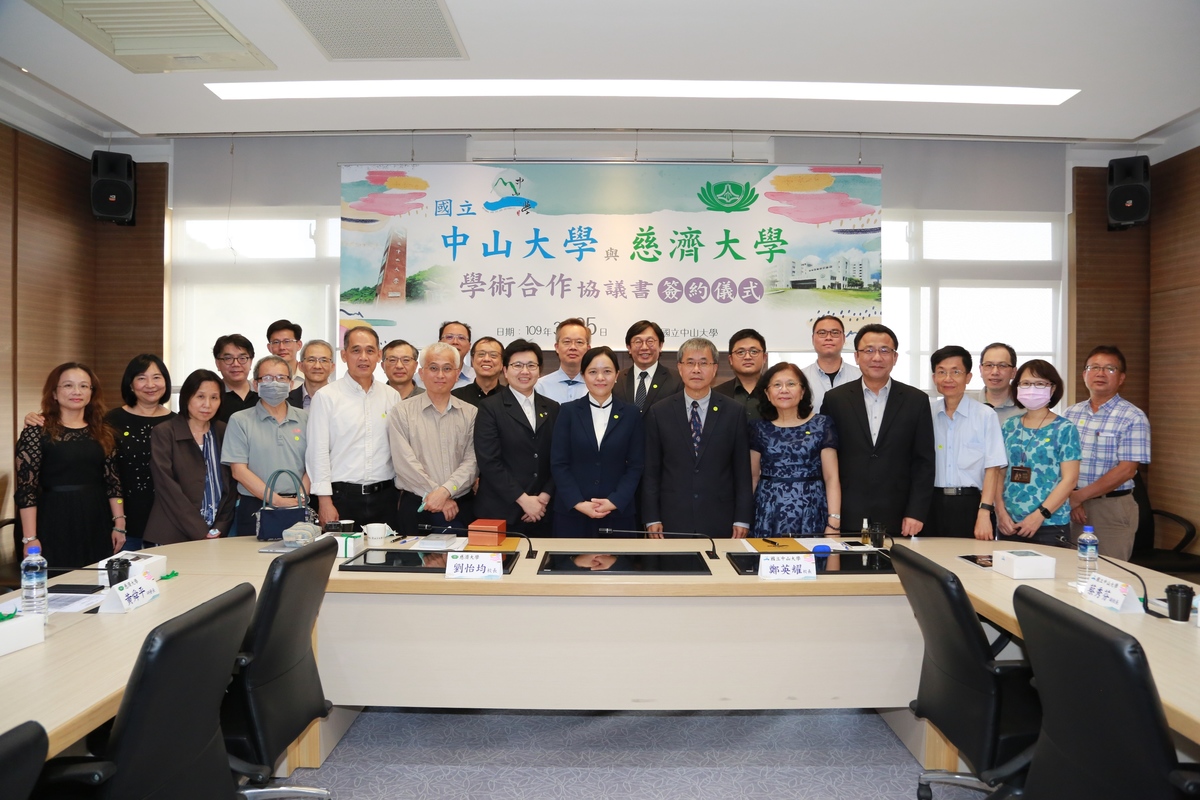
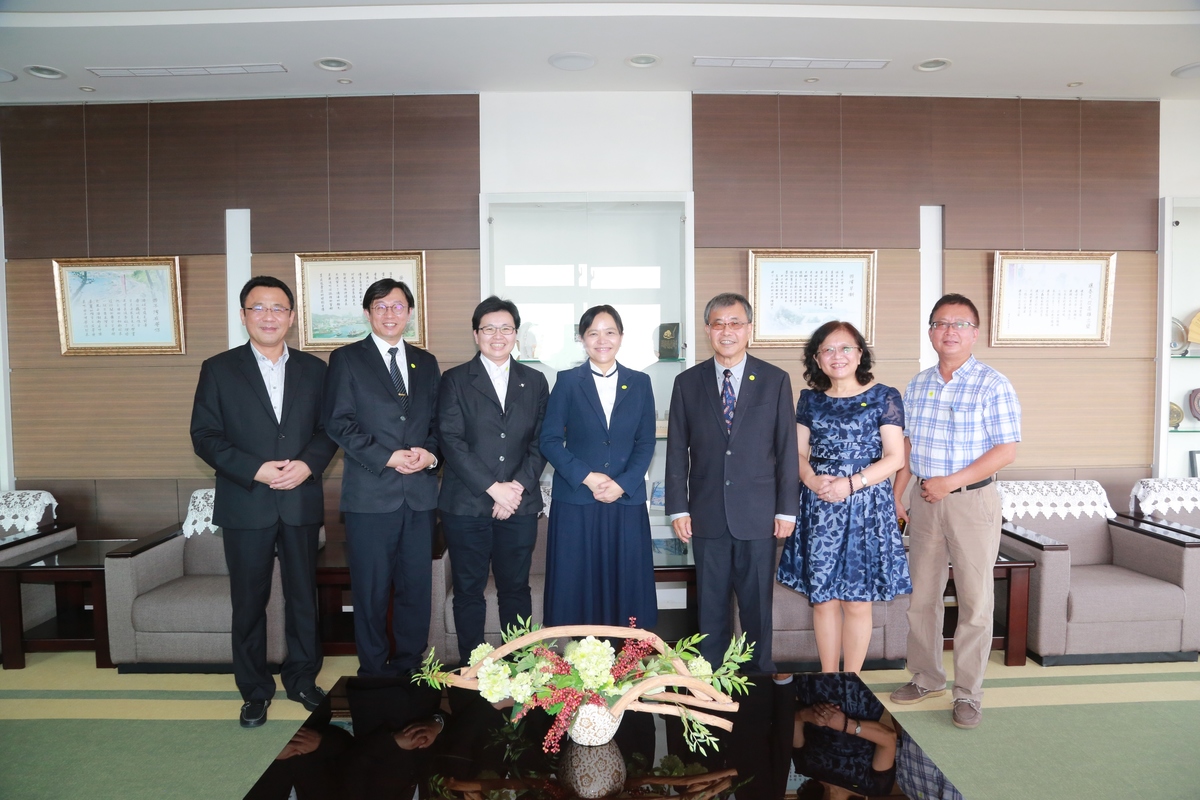
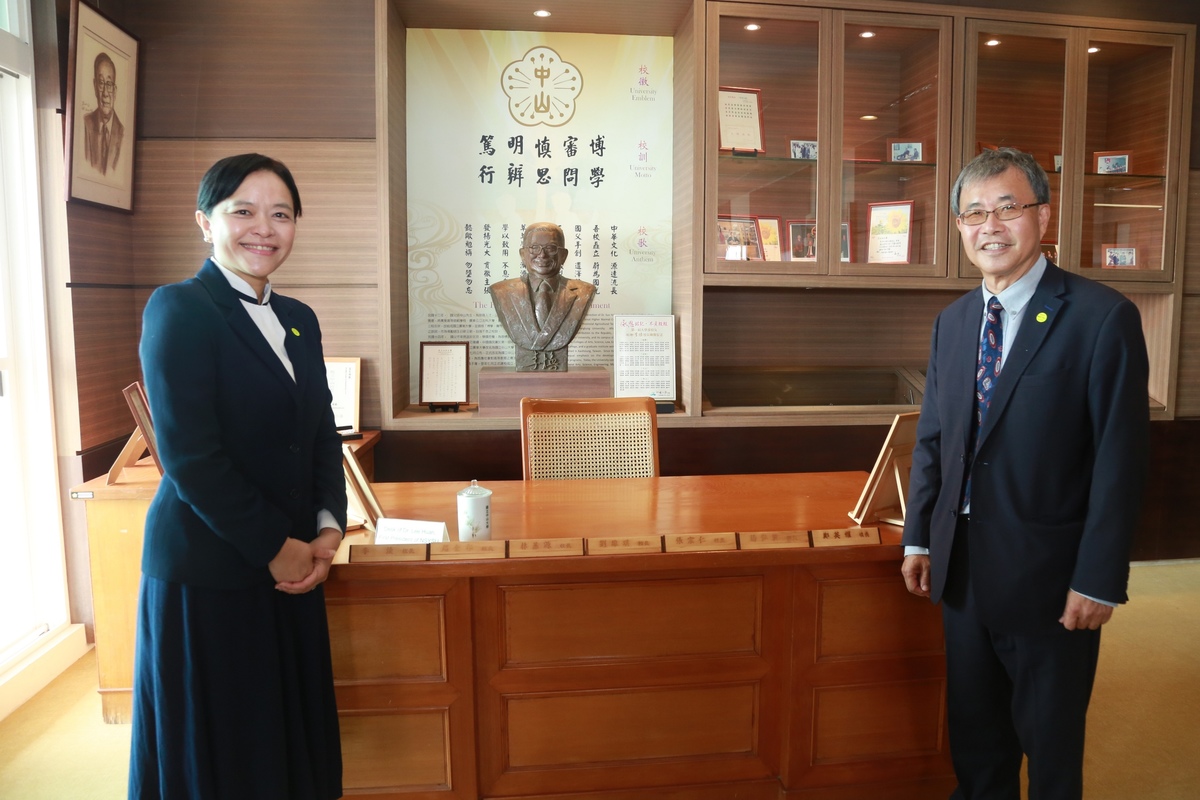
National Sun Yat-sen University and Tzu Chi University signed an MOU on academic exchange and training of medical professionals to invest together in the medical field, academic research, develop new technologies and cultivate medical professionals. NSYSU President Ying-Yao Cheng emphasized that in 2020 the University founded the Institute of BioPharmaceutical Science and Institute of Precision Medicine and is in the process of establishing the School of Post-Baccalaureate Medicine. The anatomy course with a surgery simulator at the Tzu Chi University is internationally acknowledged. In the future, both universities will collaborate in science, philanthropy, and education and start inter-university online courses in medicine, offer internships, minor and double major study opportunities across both universities, cultivate international researchers in the field of medicine and professionals to deliver medical services in remote areas.
According to the website of National Statistics of the Republic of China, in 2017, there was an average of 8.28 medical professionals per square kilometer in Taiwan. In the Taipei area, there was an average of 42.89 medical professionals per square kilometer, while only 4.93 in the Kaohsiung-Pingtung-Penghu-Taitung area; this proves the unequal distribution of medical resources between the North and South of Taiwan. By the end of 2016, the average number of medical professionals of Internal medicine, surgery, pediatrics, gynecology and obstetrics, and emergency medicine per 10 000 population in Kaohsiung, Pingtung, Penghu, Taitung and outer islands was significantly lower than the national average. About 400 professionals of general medicine graduate every year; 276 of them start serving in the healthcare system, with only 32 joining the medical facilities in Kaohsiung.
Kaohsiung, Pingtung, Penghu, Taitung, and Hualien are the areas with the least medical resources, said President Cheng. He pointed out that, having the crisis of shortage of medical professionals in consideration, NSYSU applied for the establishment of School of Post-Baccalaureate Medicine to cultivate medical professionals, hoping to serve in remote areas where resources are scarce. NSYSU and Tzu Chi University have the same values of sustainable development and caring for the disadvantaged. Tzu Chi University produced numerous research papers on long-term care, nursing, communicable diseases, and Alzheimer's disease. The cooperation of both universities will contribute to the international academic research and practical capacity to improve the healthcare service in Taiwan.
President of the Tzu Chi University Ingrid Liu said, that having signed the MOU on cooperation, the universities will contribute to the integration of medical education resources in the North and South of Taiwan, connection of the related specialist fields and development of the healthcare system in Taiwan. As for the cultivation of top medical professionals, Tzu Chi University will share educational resources not only for basic medicine but also for clinical practice, such as surgery simulation, to expand the scope of medical services and serve more patients. Both universities will jointly research biomedicine and medicinal technology and combine academic and clinical practice for the best results.
Education achievements in the fields of basic biomedicine and interdisciplinary technological solutions at NSYSU have been outstanding. In the past 10 years, over 400 clinicians in the healthcare structure of the Kaohsiung, Pingtung, and Penghu area obtained a master or doctoral degree from NSYSU. The University has been collaborating with Kaohsiung Veterans General Hospital, Kaohsiung Medical University, Kaohsiung Chang Gung Memorial Hospital, Kaohsiung Armed Forces General Hospital, Kaohsiung Municipal United Hospital, Kaohsiung Municipal Min-Sheng Hospital, Kaohsiung Municipal Ta-Tung Hospital, Kaohsiung Municipal Siaogang Hospital, Kaohsiung Municipal Kai-Syuan Psychiatric Hospital, and Kaohsiung Municipal Feng-Shan Hospital in the fields of medicinal chemistry, pharmacology and toxicology, environmental medicine, translational medicine, new drug development, medical engineering, music therapy, medical devices, and medical management.
According to the website of National Statistics of the Republic of China, in 2017, there was an average of 8.28 medical professionals per square kilometer in Taiwan. In the Taipei area, there was an average of 42.89 medical professionals per square kilometer, while only 4.93 in the Kaohsiung-Pingtung-Penghu-Taitung area; this proves the unequal distribution of medical resources between the North and South of Taiwan. By the end of 2016, the average number of medical professionals of Internal medicine, surgery, pediatrics, gynecology and obstetrics, and emergency medicine per 10 000 population in Kaohsiung, Pingtung, Penghu, Taitung and outer islands was significantly lower than the national average. About 400 professionals of general medicine graduate every year; 276 of them start serving in the healthcare system, with only 32 joining the medical facilities in Kaohsiung.
Kaohsiung, Pingtung, Penghu, Taitung, and Hualien are the areas with the least medical resources, said President Cheng. He pointed out that, having the crisis of shortage of medical professionals in consideration, NSYSU applied for the establishment of School of Post-Baccalaureate Medicine to cultivate medical professionals, hoping to serve in remote areas where resources are scarce. NSYSU and Tzu Chi University have the same values of sustainable development and caring for the disadvantaged. Tzu Chi University produced numerous research papers on long-term care, nursing, communicable diseases, and Alzheimer's disease. The cooperation of both universities will contribute to the international academic research and practical capacity to improve the healthcare service in Taiwan.
President of the Tzu Chi University Ingrid Liu said, that having signed the MOU on cooperation, the universities will contribute to the integration of medical education resources in the North and South of Taiwan, connection of the related specialist fields and development of the healthcare system in Taiwan. As for the cultivation of top medical professionals, Tzu Chi University will share educational resources not only for basic medicine but also for clinical practice, such as surgery simulation, to expand the scope of medical services and serve more patients. Both universities will jointly research biomedicine and medicinal technology and combine academic and clinical practice for the best results.
Education achievements in the fields of basic biomedicine and interdisciplinary technological solutions at NSYSU have been outstanding. In the past 10 years, over 400 clinicians in the healthcare structure of the Kaohsiung, Pingtung, and Penghu area obtained a master or doctoral degree from NSYSU. The University has been collaborating with Kaohsiung Veterans General Hospital, Kaohsiung Medical University, Kaohsiung Chang Gung Memorial Hospital, Kaohsiung Armed Forces General Hospital, Kaohsiung Municipal United Hospital, Kaohsiung Municipal Min-Sheng Hospital, Kaohsiung Municipal Ta-Tung Hospital, Kaohsiung Municipal Siaogang Hospital, Kaohsiung Municipal Kai-Syuan Psychiatric Hospital, and Kaohsiung Municipal Feng-Shan Hospital in the fields of medicinal chemistry, pharmacology and toxicology, environmental medicine, translational medicine, new drug development, medical engineering, music therapy, medical devices, and medical management.
Click Num:
Share
